About
The Metropolitan Washington Chapter of the ARCS (Achievement Rewards for College Scientists) Foundation has played a vital role in sustaining and enhancing scientific study at the university through its generous support of graduate education and research in the STEM fields since 1973.
Beginning in 2012, the Chapter began awarding scholarships to Georgetown undergraduates, a move which further highlighted the central place of science in a liberal arts education. A steadfast partner to Georgetown, the Metropolitan Washington Chapter was inducted into the 1789 Society in 2015 for having exceeded $1 million in philanthropic giving to the university. The Chapter was formally recognized with an award and citation at the Spring Faculty Convocation Ceremony on March 31, 2015.
2025-26 Awards
2025-26 ARCS Endowed Scholar Awards
The Metropolitan Washington Chapter of the ARCS Foundation has notified the Graduate School that it will once again support graduate education and research with two ARCS Endowment Scholar Awards for the 2025-26 academic year, each valued at $15,000. The call for nominations for the separate 2025-26 ARCS Chapter Awards is then expected in February.
- Georgetown University is eligible to nominate two students for the Endowment Scholar Awards, and this year ARCS has requested nominations from one graduate student in the field of Chemistry and one graduate student in the field of Mechanical Engineering.
- Funds may be applied toward stipend, tuition or research costs during the academic year of award. A listing of our current and past graduate fellows is provided below.
Nominee Eligibility
- U.S. Citizenship
- Full-time enrollment in an approved doctoral program
- GPA of 3.5 or above
- Completing dissertation research in mechanical engineering or chemistry
- Each program may nominate up to two students per field (engineering and chemistry).
Applicants are selected without regard to race, gender or religion.
To Apply
Students should apply to their graduate programs. Ph.D. programs in Chemistry and Physics may nominate up to two students per field to the Joint Office of Graduate Studies for consideration.
The nomination packet requires the following items, collated as one PDF:
From the student:
- A completed scholar application, including a statement of no more than two pages, single-spaced, describing their research and articulating how the funding would be beneficial to their progress;
- An unofficial copy of their transcript;
- A current CV
From the program:
- Two letters of recommendation, one from the mentor and a second from either the Chair or the Director of Graduate Studies**
**Please include in each letter both an assessment of the student’s academic work to date and a brief description of his or her research and its significance. Letters should be printed on university letterhead and addressed to the Vice President for Graduate Studies.
Submission and Review
Nominations should be collated as one complete PDF and submitted to Elizabeth George (erg51@georgetown.edu) no later than 5:00 p.m. on Thursday, December 12, 2024.
Nominations must be submitted by the Director of Graduate Studies (DGS) or designated program staff.
The Graduate Research Steering Committee will select three institutional nominees to ARCS.
Guidelines on Proposed Use of ARCS funds
ARCS would prefer that funds be used to directly further the student’s research, such as funds to cover or defray purchase or use of specialized lab equipment and materials unique to their research or travel for field research (but not for a scientific meeting that the student would have attended anyway).
The important thing to remember is that when ARCS asks a nominee to explain how their support will advance the student’s research, they want to hear about specific, tangible uses — things that the student will be able to do that otherwise would be difficult or impossible without their support. Some of the funds may still be allocated toward the student’s stipend support; but wherever possible, we recommend that a portion be targeted for direct research support. Identifying these differential uses for the $15,000 will require that the nomination include a simple budget.
2025 Scholars
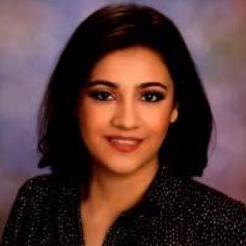
Joan Jordano Scholar
Katelyn Dial, Ph.D. candidate in Biochemistry & Molecular Biology
Dissertation Research: Investigating how psychedelics work at a specific brain receptor called the serotonin 2A receptor to rapidly reverse the symptoms of depression; activating this receptor changes structures called perineuronal nets, which normally restrict the brain’s ability to adapt and heal. By studying how psychedelics remodel these structures, this research aims to uncover new ways to make the brain more flexible and resilient, leading to faster and more lasting treatments for depression.
Mentor: Dr. Katherine Conant
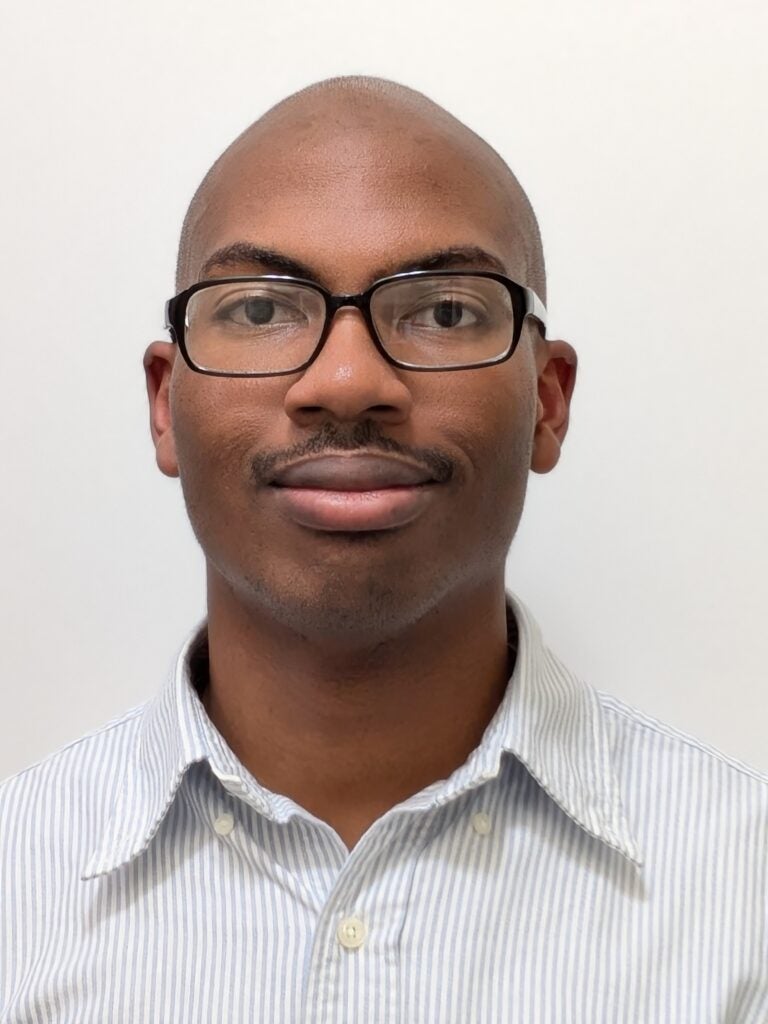
Chapter Scholar
Darrian Mills, Ph.D. candidate in Physics
Dissertation Research: Designing and engineering a flexible skin patch capable of delivering drugs transdermally. Using standard integrated circuit microfabrication techniques, the patch will allow for the delivery of drugs through the microchannels in the topmost layer of the skin and directly into the body in a painless and non-intrusive manner.
Mentor: Dr. Mak Paranjape
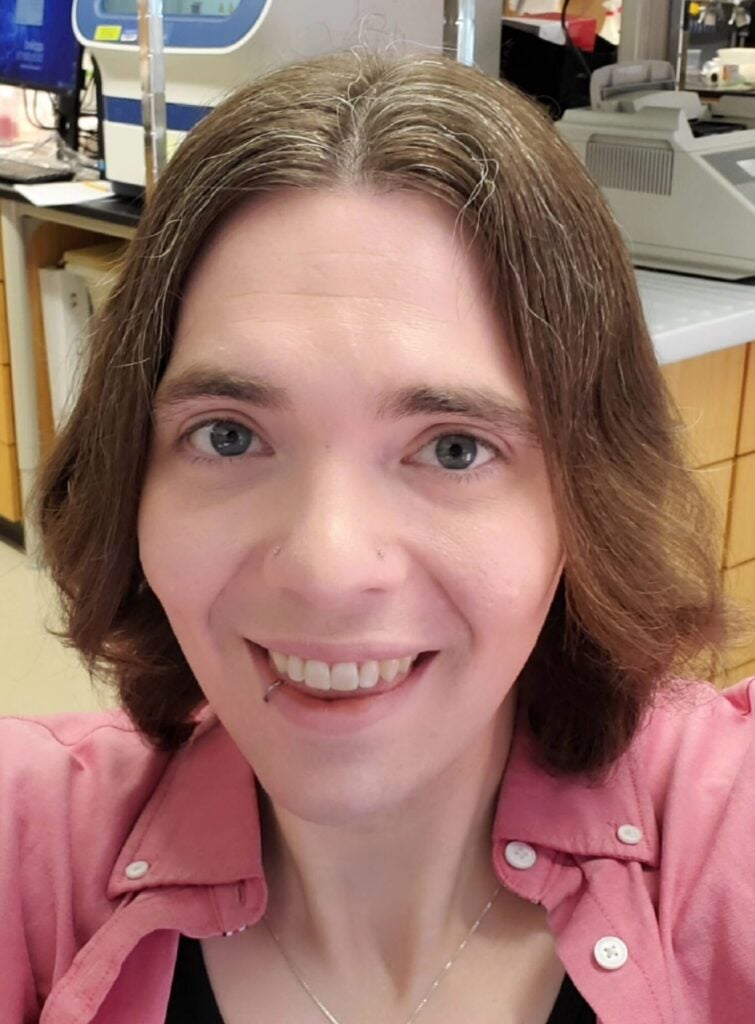
Mars Foundation Scholar
Charli Minsavage-Davis, Ph.D. candidate in Biology
Dissertation Research: Using artificial intelligence (AI) with novel mechanistic models to sequence genome-scale DNA data from the critically understudied salt marsh foundation species, Spartina patens. This novel approach will forward our understanding of the impacts of asexual reproduction on genetic population structure and evolution in macro-organisms.
Mentor: Dr. Matthew Hamilton
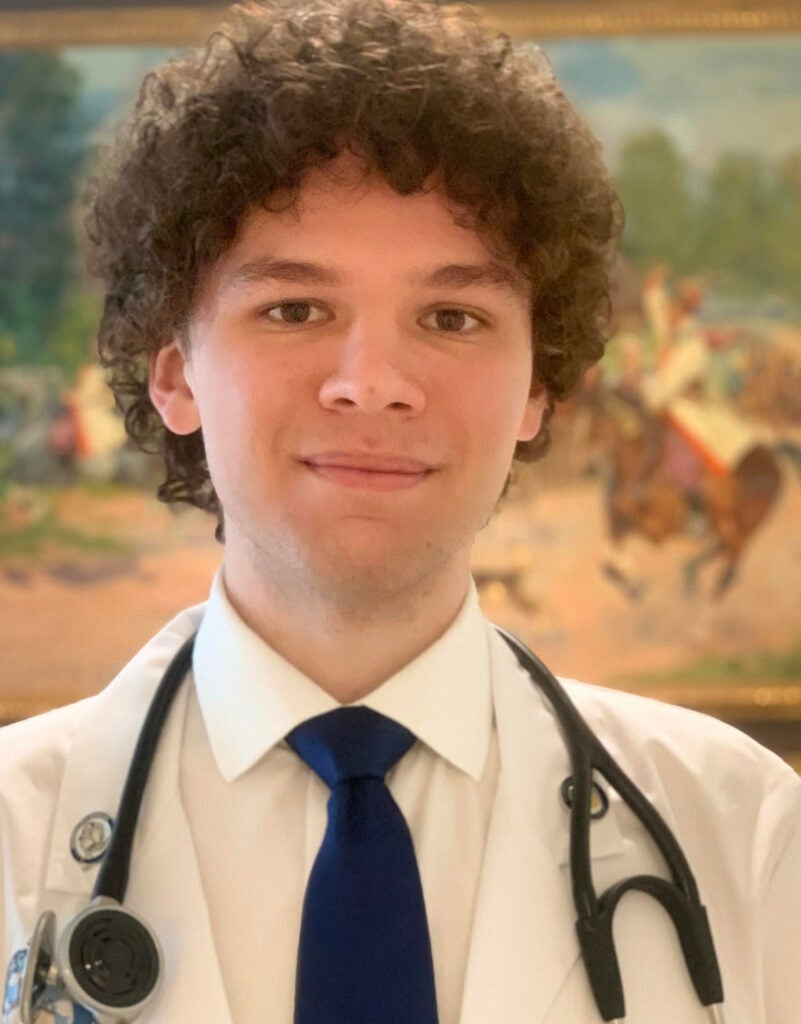
Forster Family Foundation Scholar
Alexander Lekan, M.D./Ph.D. candidate in Tumor Biology
Dissertation Research: Identifying treatment strategies to increase immune cell accumulation in pancreatic cancer in order to improve patient responses to immunotherapy. Specifically, utilizing high throughput spatial imaging technologies to identify the impact of increasing immune cell-tumor cell interactions on promoting anti-tumor effects in pancreatic cancer.
Mentor: Dr. Louis M. Weiner
2024 Scholars
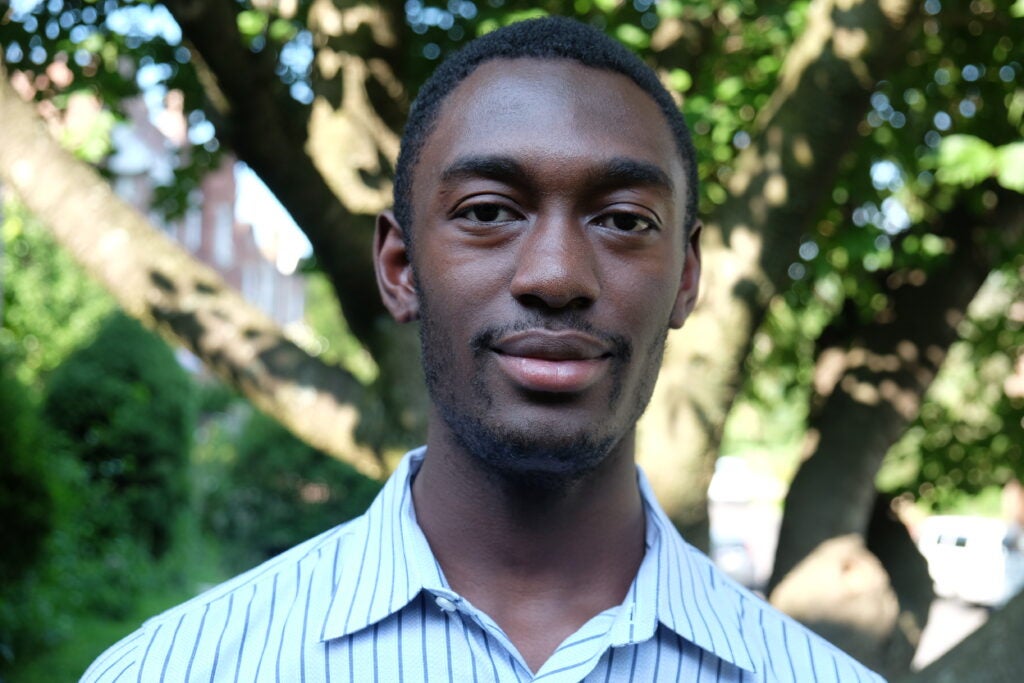
Endowment Fellow
DaVonne Henry, Ph.D. candidiate in Physics
Dissertation Research: Fabricating graphene devices in the form of quantum dot bolometers for use as a measurement platform for studying single-molecule magnets. These devices show promise for quantum computing, magnetic storage, and allow for the study of smaller samples of molecular magnets than conventional methods.
Mentors: Dr. Paola Barbara & Dr. Amy Liu
Awarded for academic year 2024-25
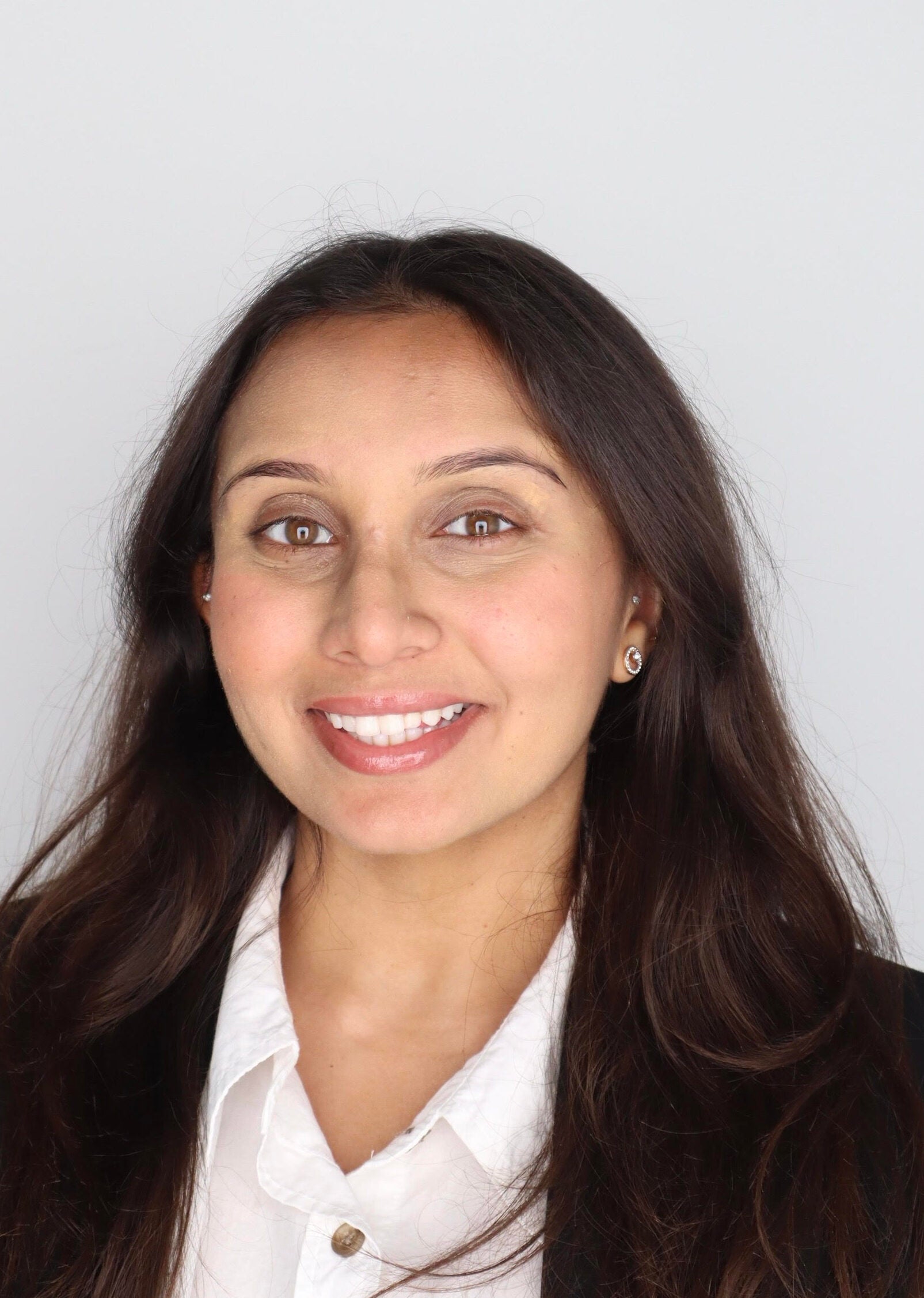
Chapter Scholar
Prachi Shah, Ph.D. candidiate in Biology
Dissertation Research: Understanding memory systems, pasticularty the active, biological process of forgetting is a core area of research that can lead to cutting-edge treatments for neurobiological disorders. Using Drosophila, this research will examine is labile memories vulnerable to degradation by different insults, such as anesthesia, is a process mediated by dopaminergic signaling.
Mentor: Dr. Isaac Cervantes-Sandoval
Awarded for academic year 2024-25

Forster Family Foundation Scholar
Alexander Lekan, Ph.D. candidate in Tumor Biology
Dissertation Research: Identifying treatment strategies to increase immune cell accumulation in pancreatic cancer in order to improve patient responses to immunotherapy. Specifically, utilizing high throughput spatial imaging technologies to identify the impact of increasing immune cell-tumor cell interactions on promoting anti-tumor effects in pancreatic cancer.
Mentor: Dr. Louis M. Weiner
Awarded for academic year 2024-25
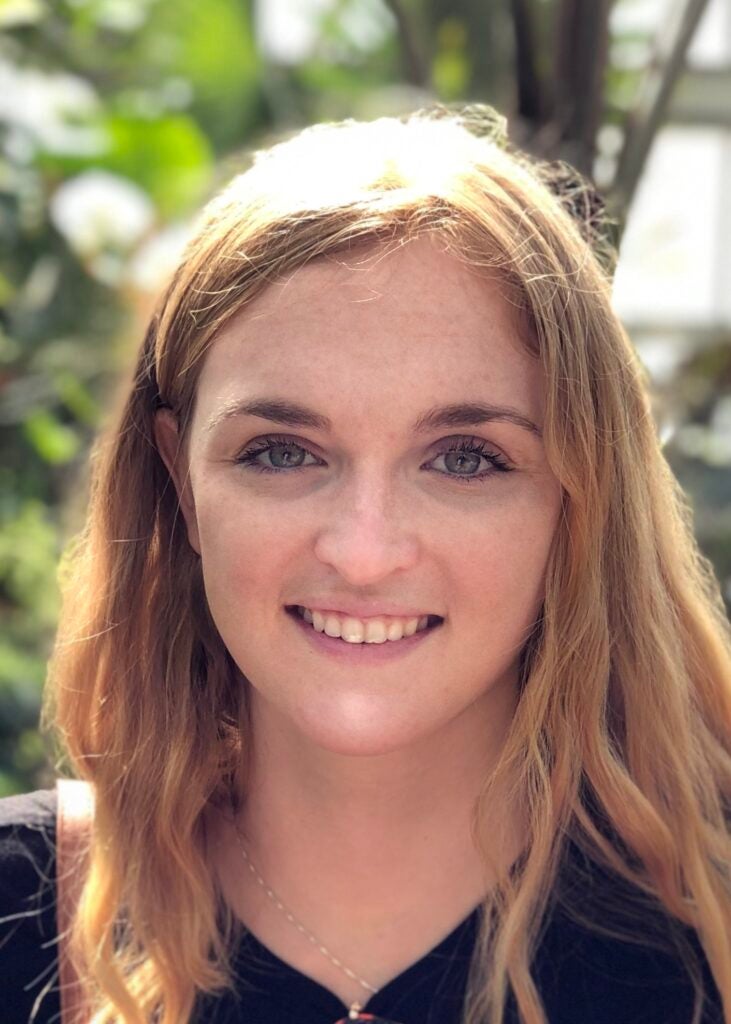
JCM Foundation Scholar
Rachael Maynard, Ph. D. candidate in Tumor Biology
Dissertation Research: Investigating novel mechanisms of enhancing immune cell invasion into tumors by overexpressing proteases responsible for the digestion of extracellular matrix. This is done with the goal of improving existing cellular therapies in solid tumors, like pancreatic cancer.
Mentor: Dr. Louis M. Weiner
Awarded for academic year 2024-25
2023 Scholars
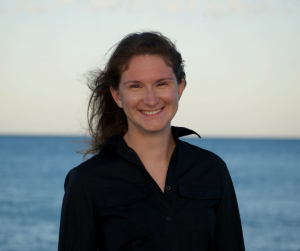
Mars Foundation Scholar
Ellen Jacobs, Ph.D. candidate in Biology
Dissertation Research: Bottlenose dolphins foraging with sponge tools in Shark Bay, Western Australia represent the best documented case of tool use in a wild cetacean, but precise mechanisms of the technique are not known. This research investigates whether dolphins modify echolocation use while sponging compared to similar foraging methods without sponge tools by combining behavioral, acoustic, and sound propagation modeling techniques.
Mentor: Dr. Janet Mann
Awarded for academic year 2023-24
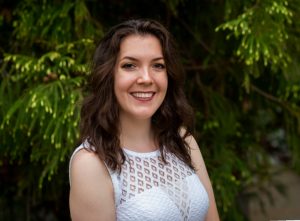
Matt Riddle Scholar
Zoe Malchiodi, Ph.D. candidate in Tumor Biology
Dissertation Research: Investigating mechanisms of immune cell interactions in pancreatic cancer by utilizing high-throughput spatial technologies. This approach will provide insights on immune cell localization and identify new therapeutic targets to promote anti-tumor immune responses and immunotherapy efficacy in pancreatic cancer.
Mentor: Dr. Louis M. Weiner
Awarded for academic year 2023-2024
2022 Scholars
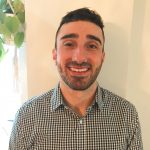
Mars Foundation Scholar
Devin Palmer, Ph.D. candidate in Neuroscience
Dissertation Research: Understanding the “road map” by which seizures spread in the brain. Using high spatial and temporal resolution methods to record, target and manipulate neuronal activity within defined regions of the brain to influence seizure initiation, propagation and cessation.
Mentor: Dr. Patrick Forcelli
Awarded for academic year 2022-23

Danaher Corporation Scholar
Micaila Curtis, Ph.D. candidate in Biochemistry & Molecular Biology
Dissertation Research: Investigating pancreatic cancer, one of the deadliest cancers in the world, by combining apelin endothelial signaling pathway, pancreas-on-a-chip technology, and extracellular vesicles — three important and relatively new areas of research — in hopes to bring better intervention and detection methods to clinical practice.
Mentor: Dr. Amrita Cheema
Awarded for academic year 2022-2023
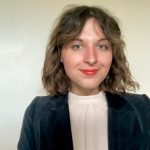
Chapter Scholar
Jordan Tanen, Ph.D. candidate in Chemistry
Dissertation Research: Developing high-sensitivity analytical techniques for quantitative trace fluorine detection in complex environmental and biological samples, to enable quantification of any fluorine-containing molecule without the need for standards specific to that compound; offering a general approach for trace-level quantitative mapping of fluorochemical bio- and environmental transformations.
Mentor: Dr. Kaveh Jorabchi
Awarded for academic year 2022-23
2021 Scholars

Chapter Scholar
Devin Palmer, Ph.D. candidate in Neuroscience
Dissertation research: Understanding the “road map” by which seizures spread in the brain. Using high spatial and temporal resolution methods to record, target and manipulate neuronal activity within defined regions of the brain to influence seizure initiation, propagation and cessation.
Mentor: Dr. Patrick Forcelli
Awarded for academic year 2021-2022
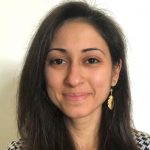
Chapter Scholar
Raneen Rahhal, Ph.D. candidate in Tumor Biology
Dissertation Research: Integrating high-throughput and spatial technologies to discover interactions between tumors cells and the microenvironment that promote metastasis. This new discovery approach will illuminate our understanding of tumor evolution and has the potential to identify new drug targets for the treatment of patients with metastatic cancer.
Mentor: Dr. Gray Pearson
Awarded for academic year 2021-2022
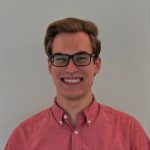
Chapter Scholar
Joel Swanson, Ph.D. candidate in Chemistry
Dissertation Research: The europium chalcogenides (EuO, EuS, EuSe and EuTe) are intrinsic magnetic semiconductors that have highly coupled magnetic, electronic and optical properties. Investigation of this coupling on the nanoscale is key to the integration of exciting properties such as spin filtering and magnetoresistance into the next generation of electronics.
Mentor: Dr. Sarah Stoll
Awarded for academic year 2021-2022
2020 Scholars and Fellows

Chapter Scholar
Megan Barefoot, M.D./Ph.D. candidate in Tumor Biology
Dissertation Research: Optimizing liquid biopsy technology to trace the origins of cell-free DNA using tissue- and cell-type specific methylation patterns. How to use these advancements to better understand disease and toxicities at a cellular level, specifically to determine the onset and time course of liver damage from reperfusion injury after liver transplant.
Mentor: Dr. Anton Wellstein
Awarded for academic year 2020-2021
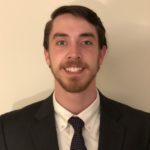
Endowment Fellow
Daniel O’Brien, Ph.D. candidate in Physics
Dissertation Research: Utilizing micro-scale fabrication techniques to design and develop novel medical devices for biomarker sensing in non-invasively sampled human interstitial fluid.
Mentor: Dr. Mak Paranjape
Awarded for academic year 2020-2021 (Endowment Fellow) and 2019-20 (Chapter Scholar)
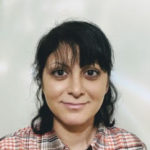
Endowment Fellow
Nicole Wagner, Ph.D. candidate in Biology
Dissertation Research: Using a combination of wet-lab work and bioinformatics to study the survival mechanisms of primitive microbial life in a perennially frozen, methane-rich Antarctic lake, which serves as an analog for the icy moons in the outer reaches of our solar system.
Mentor: Dr. Sarah Stewart Johnson
Awarded for academic year 2020-2021
ARCS Scholars 2008-2019
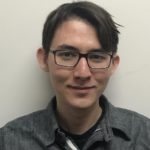
Chapter Scholar
Andrew Kelly, Ph.D. candidate in Chemistry
Dissertation Research: Using supramolecular chemistry to investigate binding interactions involving halogens and organometallic synthesis, as well as researching catalysis for the synthesis of pharmaceutically relevant compounds.
Mentor: Dr. Timothy Warren
Awarded for academic year 2019-2020

Chapter Scholar
Alyssa King, Ph.D. candidate in Biology
Dissertation Research: Using genetic tools to determine the role of non-coding, regulatory RNA, RsaD in Staphylococcus aureas virulence, specifically how RsaD contributes to the development of multicellular communities during infection.
Mentor: Dr. Shaun Brinsmade
Awarded for academic year 2019-2020
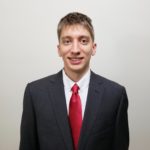
Endowment Fellow
Sean MacAvaney, Ph.D. candidate in Computer Science
Dissertation Research: Using modern machine-learning techniques to improve information-retrieval systems, including those that answer complex questions; systems that find relevant medical literature to support physicians; and systems that can identify those suffering from mental illnesses, by analyzing social media activity to provide early support.
Mentor: Dr. Nazli Goharian
Awarded for academic year 2019-2020
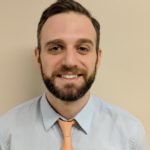
Forster Family Foundation Scholar
Adam Caccavano, Ph.D. candidate in Neuroscience
Dissertation Research: How hypocampal activity, which is critical for memory consolidation, is impaired in Alzheimer’s disease. Investigating the neuronal microcircuitry with the tools of electrophysiology, calcium imaging, and computational modeling.
Mentor: Dr. Stefano Vicini
Awarded for academic year 2018-2019
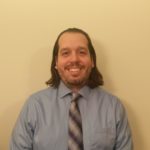
Chapter Scholar
Matthew Hansen, Ph.D. candidate in Chemistry
Dissertation Research: The use of Raman spectroscopy to investigate the fundamental properties of zinc oxide nanorods (ZnO) to better understand now the structure of ZnO nanomaterials influences its physical properties, and to study facet-specific reactivity of the material.
Mentor: Dr. Jong-In Hahm
Awarded for academic year 2018-2019
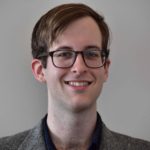
Gladi Mathews Memorial Scholar
Evan Gardner, Ph.D. candidate in Chemistry
Dissertation Research: The development of novel catalytic systems for the sustainable production of ammonia from abundant dinitrogen as well as electrocatalytic ammonia oxidation systems for efficient fuel cells in energy applications.
Mentor: Dr. Timothy Warren
Awarded for academic year 2017-2018

Forster Family Foundation Scholar, Danaher Corporation Scholar & Chapter Scholar
Marina Solomos, Ph.D. (Chemistry, 2018)
Dissertation: Phase Control of Diphenylureas Through Co-Crystallization and Template-Directed Methods
Mentor: Dr. Jennifer Swift
Awarded for academic years 2015-2016 (Forster Scholar), 2016-2017 (Danaher Corporation Scholar) and 2017-2018 (Chapter Scholar).
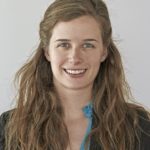
Patricia Smith Memorial Scholar & Chapter Scholar
Teresa Duncan, Ph.D. (Chemistry, 2017)
Dissertation: Hydrogels and Organogels from Partially Hydrolyzed Poly(vinyl acetates) and Boron-based Crosslinkers: Development, Characterization, and Application to the Conservation of Art
Mentor: Dr. Richard Weiss
Awarded for academic years 2014-2015 (Chapter Scholar), 2015-2016 (Chapter Scholar) and 2016-2017 (Patricia Smith Memorial Scholar).

Laytham Scholar
Erika Raven, Ph.D. (Neuroscience, 2017)
Dissertation: Reproducibility and Use of Myelin Imaging Methods for the Study of Adolescent Brain Development
Mentor: Dr. John VanMeter / Dr. Jeff Duyn (NIH)
Awarded for academic year 2016-2017
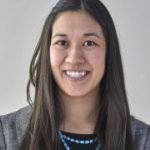
Noama Wheeler Scholar
Laura C. Erickson, Ph.D. (Neuroscience, 2016)
Dissertation: Examinations of Audiovisual Speech Processes, the McGurk Effect and the Heteromodal Superior Temporal Sulcus in the Human Brain Across Numerous Approaches
Mentors: Dr. Josef Rauschecker and Dr. Peter Turkeltaub
Awarded for academic year 2015-2016
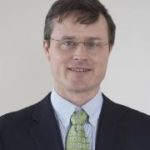
Chapter Scholar
Kyle Shattuck, Ph.D. (Neuroscience, 2016)
Dissertation: Investigating the Cholinergic Regulation of Human Learning and Memory using Functional Magnetic Resonance Spectroscopy
Mentor: Dr. John W. VanMeter
Awarded for academic year 2015-2016
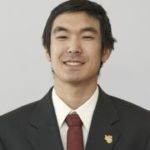
Chapter Scholar
Bryce Yoshimura, Ph.D. (Physics, 2016)
Dissertation: Theoretical studies for experimental implementation of quantum computing with trapped ions
Mentor: Dr. James Freerick
Awarded for academic years 2013-2014, 2014-2015 and 2015-2016
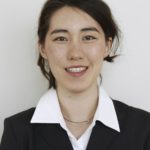
General Dynamics Scholar & Chapter Scholar
Marguerite Brown, M.S. (Physics, 2015)
Research: Studied liquid crystalline ordering under confinement, using microtubules as a model liquid crystal within microfluidic chambers to provide insight into how liquid crystals order within geometries smaller than their persistence length.
Mentor: Dr. Daniel L. Blair
Awarded for academic years 2012-2013 (General Dynamics) and 2013-2014 (Chapter)
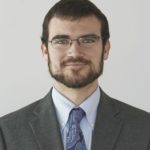
Chapter Scholar
Patrick Cox, Ph.D. (Neuroscience, 2017)
Dissertation: The Effects of Extensive Single Task and Dual Task Training on the Neural Bases of Visual Objec Categorization: Escaping the Frontal Bottleneck
Mentor: Dr. Maximilian Riesenhuber
Awarded for academic year 2014-2015
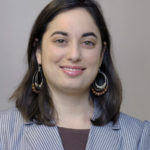
Chapter Scholar
Ilana Grace Goldberg, Ph.D. (Chemistry, 2011)
Dissertation: Directed Crystal Growth and Solid-State Analysis of the Secondary Explosives RDX and HMX
Mentor: Dr. Jennifer A. Swift
Awarded for academic years 2008-2009, 2009-2010 and 2010-2011
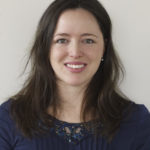
Chapter Scholar
Augusta (Hofstead-Duffy) Levendorf, Ph.D. (Chemistry, 2013)
Dissertation: Exploring the Structure-Activity Relationship of Platinum and Platinum-based Electro-catalysts for the Methanol Electro-oxidation
Mentor: Dr. YuYe Tong
Awarded for academic year 2012-2013
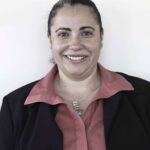
Chapter Scholar
Monique Koppel, Ph.D. (Chemistry, 2014)
Dissertation: Metal and Non-Metal Catalyzed Beta-Alkylation of Secondary Alcohols: Scope and Mechanism
Mentor: Dr. Bahram Moasser
Awarded for academic years 2009-2010, 2010-2011 and 2011-2012
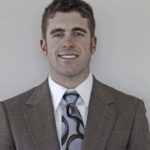
Chapter Scholar
Eric Patterson, Ph.D. (Biology, 2012)
Dissertation: Ecological and Life History Factors Influence Habitat and Tool Use in Wild Bottlenose Dolphins (Tursiops sp.)
Mentor: Dr. Janet Mann
Awarded for academic years 2009-2010, 2010-2011 and 2011-2012
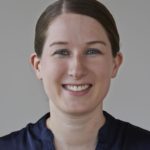
Chapter Scholar
Katy Sherlach, Ph.D. (Chemistry, 2014)
Dissertation: Assessing Antimalarial Cidality in Plasmodium falciparum Parasites
Mentor: Dr. Paul D. Roepe
Awarded for academic year 2011-2012
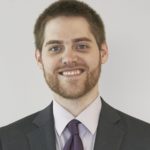
Chapter Scholar
Casey Shuptrine, Ph.D. (Tumor Biology, 2015)
Dissertation: The Molecular Determinants of Tumor Cell Modulation of Immune Selection
Mentors: Dr. Louis M. Weiner and Dr. Anton Wellstein
Awarded for academic year 2014-2015
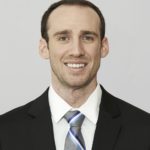
Chapter Scholar
Steven Spangenberg, M.S. (Chemistry, 2015)
Research: Conducted research in solid state organic chemistry to elucidate the dehydration mechanism(s) of crystalline hydrates, and how doping effects can be used to rationally tailor the physical properties of these materials.
Mentor: Dr. Jennifer A. Swift
Awarded for academic year 2014-2015
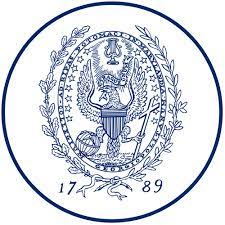
Mars Foundation Scholar & Chapter Scholar
Theodore (Trey) Picou III, Ph.D. (Biology, 2017)
Dissertation: The Hydrodynamic Model of Giardia lamblia Attachment
Mentor: Dr. Heidi Elmendorf
Awarded for academic years 2012-2013 (Mars Foundation) and 2013-2014 (Chapter)
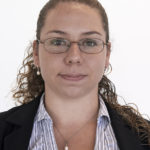
Chapter Scholar
Amanda Zirzow, Ph.D. candidate in Biology (Withdrawn, 2013)
Dissertation Research: The use of a high-throughput genetic screen to study cellular and sub-cellular mechanics of pathogenic yeast to target genes for potent therapeutics.
Mentor: Dr. Anne G. Rosenwald
Awarded for academic year 2013-2014
ARCS Scholar Awardees 1975-2007
| Scholar | Degree | Academic Year(s) of Award(s) |
|---|---|---|
| Brendan L. Brelsford, Ph.D. | Physics, 2011 | 2007-08, 2008-09 |
| Leah B. Casabianca, Ph.D. | Chemistry, 2008 | 2006-07, 2007-08 |
| Kristen P. Bloschock, Ph.D. | Physics, 2007 | 2004-05, 2005-06, 2006-07 |
| Scott T. Mough, Ph.D. | Chemistry, 2011 | 2003-04, 2004-05, 2005-06 |
| Amanda M. Munson, Ph.D. | Biology, 2005 | 2002-03, 2003-04 |
| Ryan E. Sours, Ph.D. | Chemistry, 2004 | 2000-01, 2001-02, 2002-03 |
| Catherine T. Santal | – | 2000-01 |
| Dianne M. Snow | – | 1999-00 |
| Hugh D. Moulding, Ph.D. | Neuroscience, 2002 | 1999-00 |
| David J. Abdallah, Ph.D. | Chemistry, 2000 | 1999-00 |
| Marie L. Sandrock, Ph.D. | Chemistry, 2000 | 1998-99 |
| Eric M. Hernandez, Ph.D. | Neuroscience, 2004 | 1998-99 |
| Kristopher J. Bough, Ph.D. | Biology, 1999 | 1998-99 |
| Michael J. Pishvaian, Ph.D. | Anatomy, 2001 | 1997-98 |
| Petra S. Buc, M.S. | Biology, 1991 | 1997-98 |
| Jordan D. Stockton, Ph.D. | Chemistry, 2001 | 1996-97 |
| Jason W. Allen, Ph.D. | Neuroscience, 2000 | 1996-97 |
| Richard E. Frye, Ph.D. | Physics, 1998 | 1995-96 |
| Brian T. Rasley, Ph.D. | Chemistry, 1998 | 1995-96 |
| Kenneth R. McGaffin, Ph.D. | Tumor Biology, 1999 | 1995-96 |
| Michael A. Hickey, M.S. | Biology, 1997 | 1995-96 |
| Michael G. Espey, Ph.D. | Biology, 1995 | 1994-95 |
| Lilee Cuff, Ph.D. | Chemistry, 1995 | 1994-95 |
| Anthony C. Tradico | – | 1993-94 |
| James J. Doherty, Ph.D. | Biology, 1994 | 1993-94 |
| Kent C. New, Ph.D. | Microbiology, 1998 | 1992-93, 1993-94 |
| Diana C. Glick, Ph.D. | Chemistry, 1995 | 1992-93 |
| Julianne C. Clifford, Ph.D. | Biology, 1994 | 1992-93 |
| Rita A. Ward, Ph.D. | Biology, 1993 | 1991-92 |
| Thomas C. Waidner, Ph.D. | Chemistry, 1992 | 1991-92 |
| Jonathan Kil | – | 1991-92 |
| Brent T. Harris, Ph.D. | Pharmacology, 1995 | 1990-91 |
| Stephen J. Gaudet, Ph.D. | Biology, 1991 | 1990-91 |
| Eefei Chen, Ph.D. | Chemistry, 1993 | 1990-91 |
| Ann M. McDermott, Ph.D. | Biology, 1991 | 1989-90 |
| James F. Kirby, Ph.D. | Chemistry, 1993 | 1989-90 |
| Constance Knauer, Ph.D. | Chemistry, 2000 | 1988-89 |
| Sunita V. Cooke, Ph.D. | Biology, 1991 | 1988-89 |
| Wendy I. White, Ph.D. | Biology, 1989 | 1987-88 |
| David M. Northrop, Ph.D. | Chemistry, 1991 | 1987-88 |
| Nancy L. Morris, Ph.D. | Chemistry, 1989 | 1986-87 |
| Mary E. Hooker, Ph.D. | Biology, 1987 | 1986-87 |
| Richard J. Cohen, M.S. | Physics, 1986 | 1985-86 |
| Bruce J. Acken, Ph.D. | Chemistry, 1987 | 1983-84 |
| John W. Wolf, Ph.D. | Physics, 1988 | 1984-85 |
| Jeri A. Boose, Ph.D. | Biology, 1986 | 1984-85 |
| James A. Warshaw, Ph.D. | Chemistry, 1987 | 1983-84 |
| Christopher E. Killian, Ph.D. | Biology, 1985 | 1983-84 |
| Geraldine M. Franklin | – | 1982-83 |
| Stephen C. Chalberg, Ph.D. | Chemistry, 1983 | 1981-82 |
| John A. Ives-Halperin, Ph.D. | Biology, 1985 | 1980-81 |
| Francis J. Hornicek, Ph.D. | Physics, 1983 | 1980-81, 1982-83 |
| John M. Hackney, Ph.D. | Biology, 1984 | 1979-80 |
| Michael M. Kornbluth | – | 1978-79 |
| Andrea C. Hall, Ph.D. | Biology, 1981 | 1978-79 |
| James R. Waterman, M.S. | Physics, 1980 | 1977-78 |
| Suzanne E. Ziska, Ph.D. | Biology, 1984 | 1977-78 |
| James F. Garvey | – | 1977-78 |
| Elizabeth Hepler | – | 1975-76 |